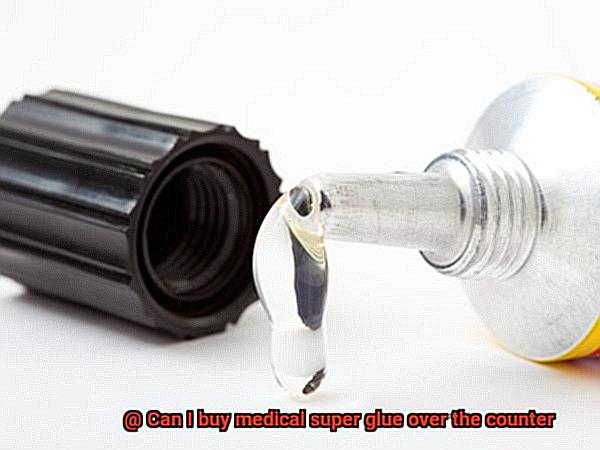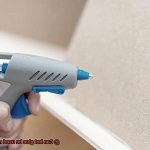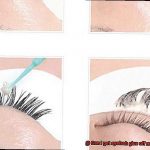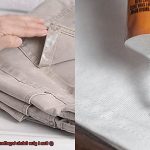Do you ever get fed up with those pesky cuts and wounds that take forever to heal?
Ever wish there was a different option than boring old band-aids or painful stitches? Well, look no further, because medical super glue is here to save the day.
This speedy adhesive dries in a flash and helps seal wounds for faster healing. But hold your horses before you go running to the nearest drugstore – you might be wondering, “Can I buy medical super glue over the counter?”
Don’t worry, my friend, this blog post has got all the answers you need. So get ready to dive into the world of medical super glue and find out if it’s available without a prescription.
Let’s get started.
What Are the Benefits of Using Medical Super Glue?
Contents
- 1 What Are the Benefits of Using Medical Super Glue?
- 2 Can I Buy Medical Super Glue Over the Counter?
- 3 Regulations Regarding the Sale of Medical Products
- 4 Availability of Medical Super Glue in the US
- 5 Types of Medical Super Glue Available Without a Prescription
- 6 Purchasing Medical Super Glue Over-the-Counter
- 7 Important Considerations When Using Medical Super Glue
- 8 Alternatives to Using Medical Super Glue for Wound Care and Treatment
- 9 Conclusion
Medical super glue, also known as surgical adhesive or tissue adhesive, offers numerous benefits for wound closure. This specialized adhesive is designed for medical use and provides an efficient, aesthetically pleasing, and versatile alternative to traditional sutures or staples. In this article, we will explore the advantages of using medical super glue and why it is an excellent choice for wound closure.
Efficiency in Wound Closure:
- Medical super glue offers rapid application, reducing the time spent in the operating room or emergency department.
- Quick application saves valuable time and lowers the risk of infection and other complications.
Improved Aesthetics:
- The adhesive forms a strong bond that holds the edges of the wound together, resulting in a less noticeable scar.
- Particularly beneficial for wounds on the face or other visible areas of the body, allowing patients to feel more confident during the healing process.
Versatility:
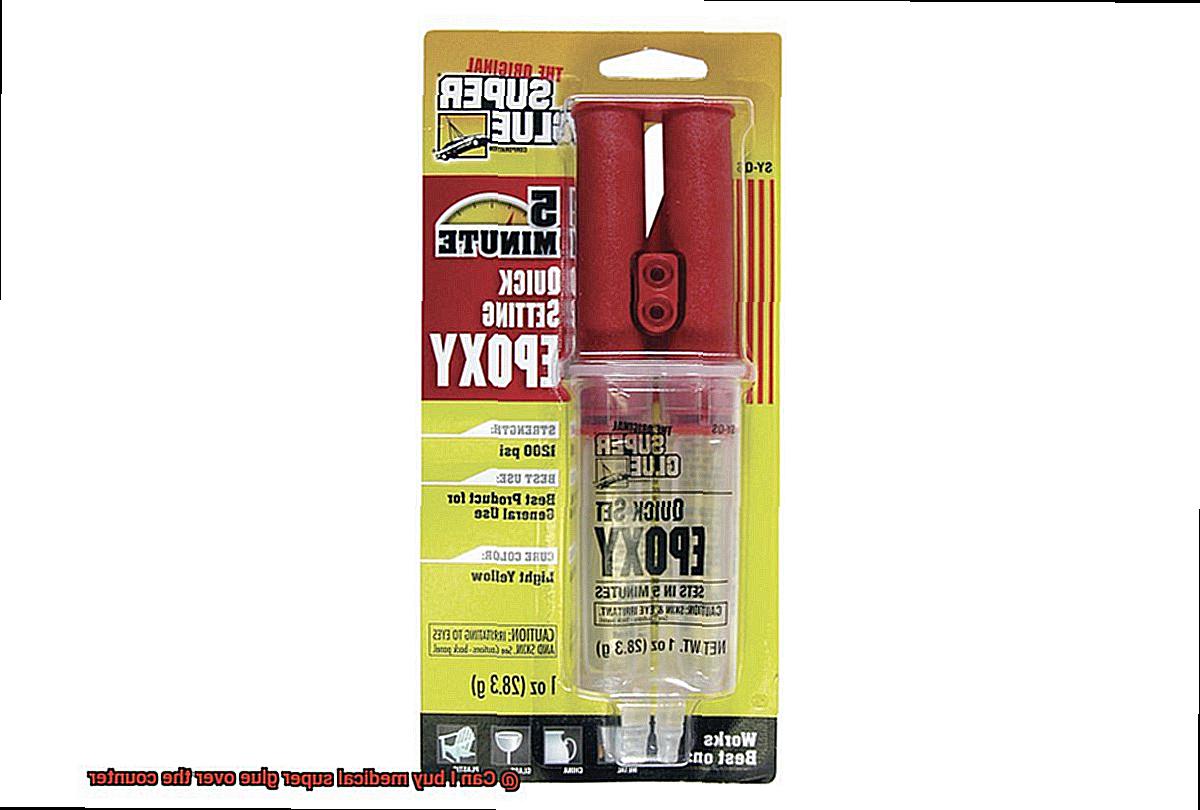
- Can be used to close a wide range of wounds, including lacerations, surgical incisions, and certain types of burns.
- Flexibility and elasticity of the glue allow for natural movement and reduce tension on the wound site, promoting faster healing.
Suitable for Difficult-to-Suture Areas:
- Preferred for wounds in areas that are challenging to suture, such as joints or areas with limited access.
- Can be used in conjunction with sutures or staples to provide additional support and improve wound healing.
Antimicrobial Properties:
- Medical super glue possesses antimicrobial properties, creating a barrier against bacteria and other microorganisms.
- Helps prevent infection and promotes a healthier healing environment.
- Some studies suggest it may be more effective than traditional wound closure methods in reducing the risk of infection.
Cost-Effectiveness:
- Offers a cost-effective alternative to sutures or staples.
- Quick application and no need for specialized equipment or extensive training help reduce healthcare costs associated with wound closure procedures.
Can I Buy Medical Super Glue Over the Counter?
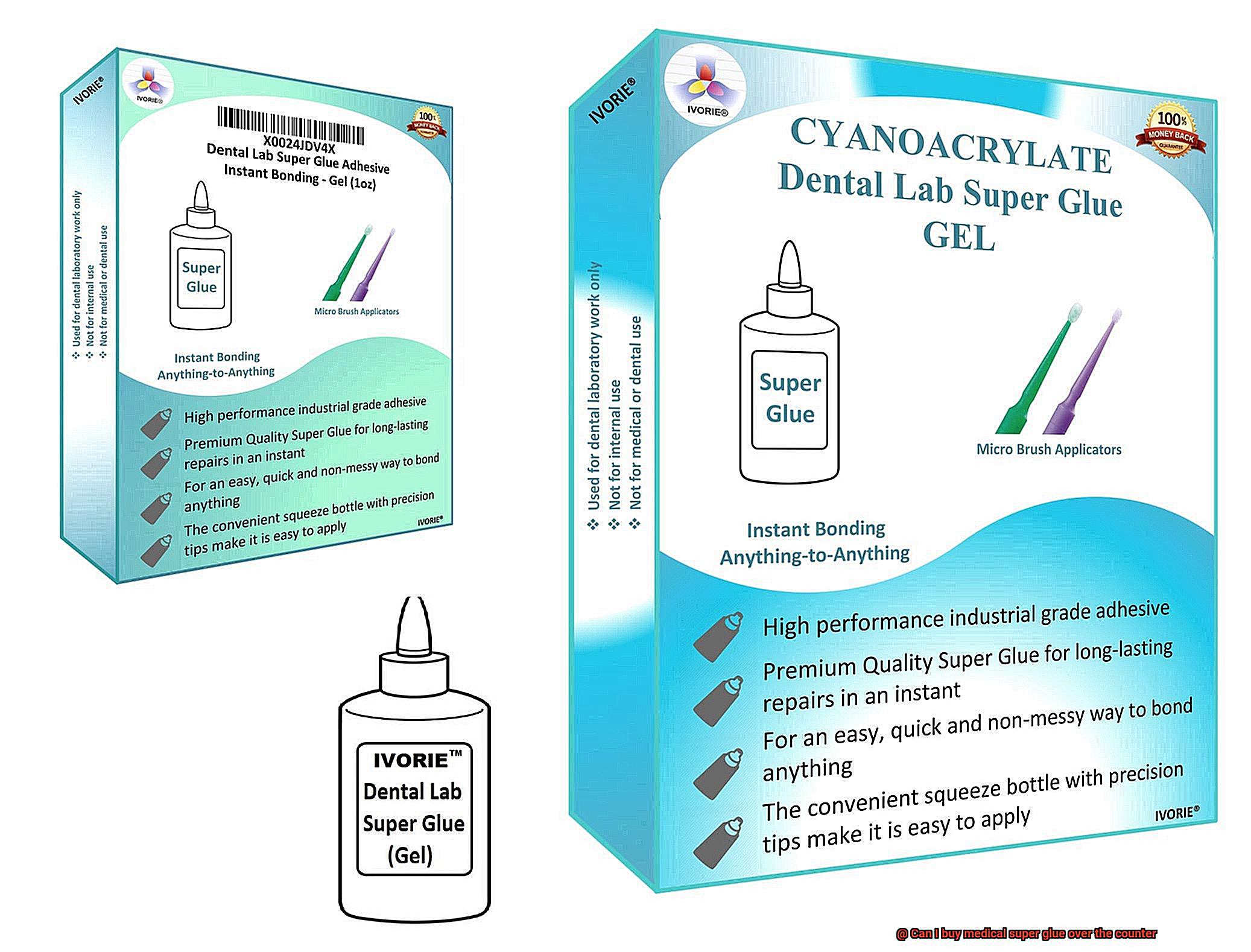
Today, we delve into the realm of adhesive wonders – specifically, medical super glue. Are you wondering if you can get your hands on this incredible adhesive for wound closure? Well, hold on tight, because here’s the sticky truth: medical super glue is not available over the counter. But why? Let’s uncover the reasons behind this restriction.
Classification as a Medical Device:
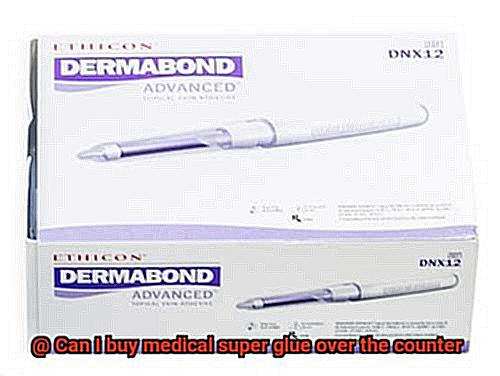
Medical super glue, also known as surgical adhesive or medical adhesive, falls under the classification of a medical device. As such, it is regulated by health authorities like the FDA. These regulations ensure that medical super glue is used correctly and safely in controlled environments by trained healthcare professionals.
Proper Usage and Application:
To prevent complications or adverse effects, it is crucial to apply medical super glue correctly. This requires the expertise of healthcare professionals who can assess wounds, determine appropriate adhesive strength, and ensure thorough wound cleaning prior to application.
OTC Alternatives:
Although medical super glue cannot be purchased over the counter, there are alternatives available. Products labeled as “skin adhesive” or “liquid bandage” serve a similar purpose for minor cuts and wounds. However, it is important to note that these products differ from medical super glue used in healthcare settings in terms of formulation, strength, and application methods.
Consultation with Healthcare Professionals:
When it comes to wound care, seeking advice from healthcare professionals is always advisable. They can evaluate the severity of your injury and recommend the most appropriate adhesive option for your specific situation. Consulting with a professional ensures proper wound care and reduces the risk of complications.
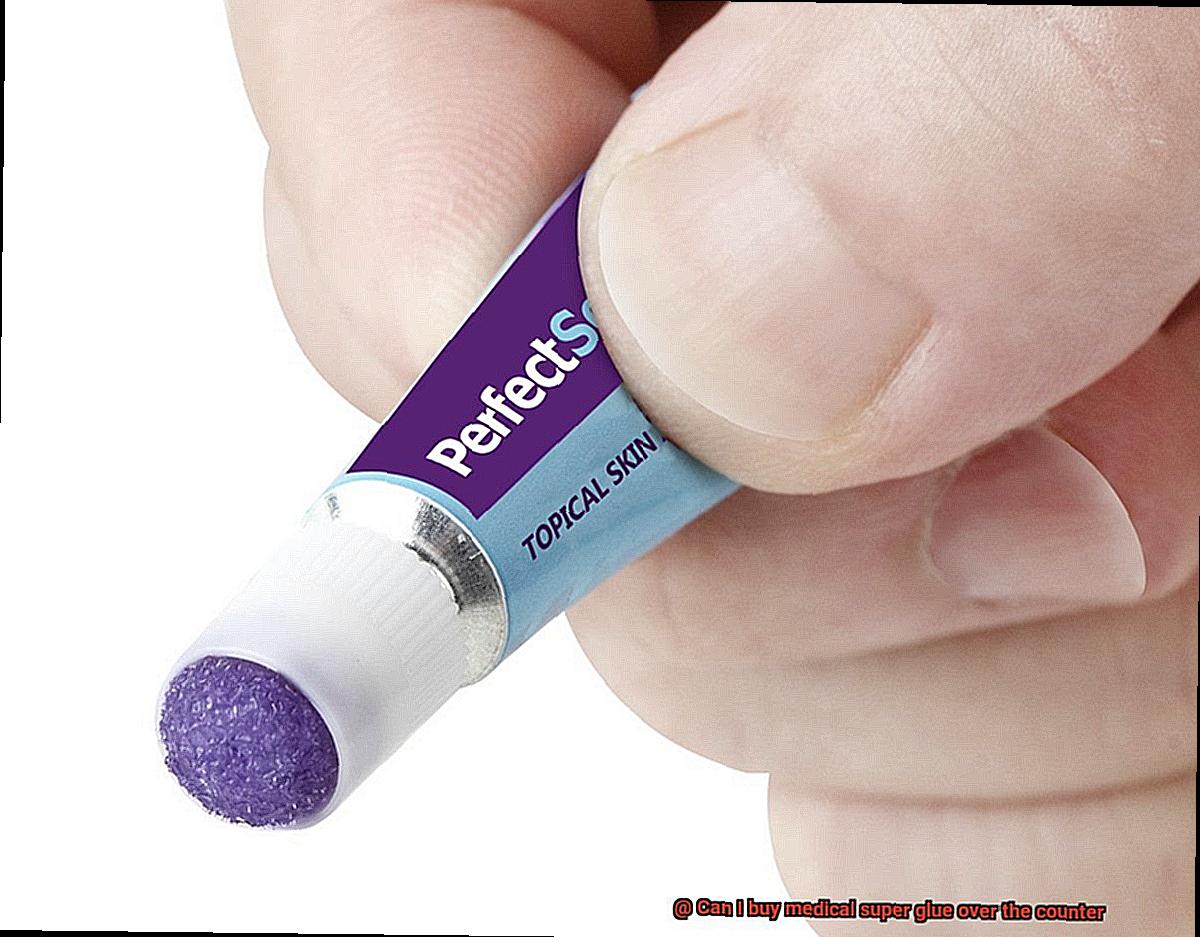
Say No to Regular Super Glue:
Using regular household super glue as a substitute for medical super glue is strongly discouraged. Regular super glue contains chemicals that are not suitable for medical use and can cause tissue damage, allergic reactions, or other complications. Stick with the right adhesive for the job.
Regulations Regarding the Sale of Medical Products
When faced with a stubborn wound, it’s tempting to reach for a quick fix like regular super glue. But did you know that there’s a specialized adhesive called medical super glue designed specifically for wound closure? While it may seem like a convenient solution, you won’t find it on the shelves of your local pharmacy. In this article, we’ll explore the world of medical regulations and uncover the reasons why medical super glue is not available over the counter.
Regulations on the Sale of Medical Products:
Government Oversight:
- Government agencies like the FDA in the United States or the EMA in Europe regulate the sale of medical products.
- These agencies ensure that medical products meet strict criteria for safety, effectiveness, and quality.
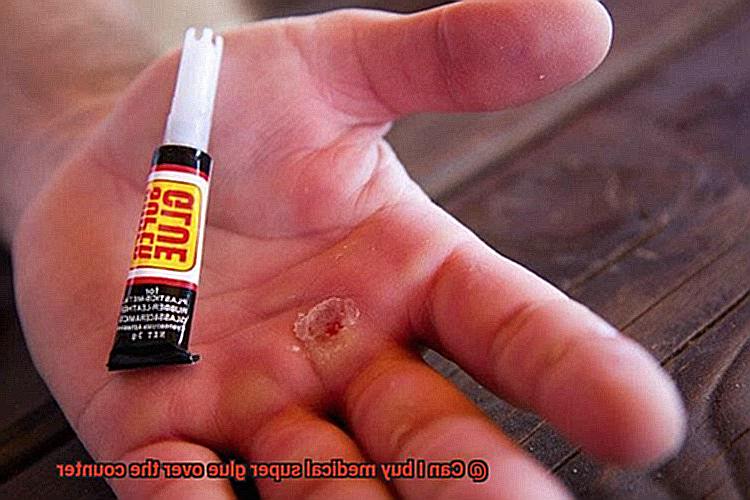
Classification of Medical Super Glue:
- Medical super glue, also known as tissue adhesive, falls under the category of medical products.
- Due to its specialized nature and potential risks if misused, medical super glue is typically classified as a prescription-only or healthcare professional-only product.
Importance of Trained Professionals:
- Regulations aim to ensure that medical super glue is applied by trained healthcare professionals who possess proper knowledge of wound closure techniques.
- These professionals consider factors such as wound location, size, and depth to determine the appropriate use of medical super glue in each individual case.
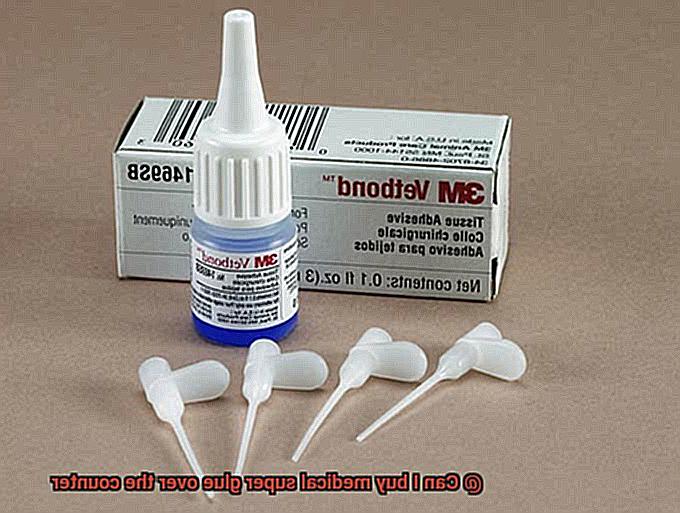
Preventing Misuse and Complications:
- Restricting over-the-counter availability helps prevent misuse or inappropriate use by individuals without sufficient knowledge or understanding of its proper application.
- This ensures that patients receive proper care and reduces the risk of complications.
Alternative Options:
- Although medical super glue may not be available without a prescription, there are other adhesive products formulated for general use in minor cuts and wounds.
- “Liquid bandages” or “skin adhesives” are over-the-counter options that can be purchased easily.
Availability of Medical Super Glue in the US
Look no further. In this blog post, we will explore the availability of medical super glue, also known as surgical adhesive, in the United States. Discover the convenience and effectiveness of this magical adhesive that can seal cuts and scrapes with ease.
Over-the-Counter Convenience:
Contrary to popular belief, medical super glue is indeed available for purchase without a prescription in the US. It can be found in pharmacies and medical supply stores nationwide, offering you the ultimate convenience when it comes to wound care. No need to wait for a doctor’s appointment or endure long hours at the emergency room.
Leading Brands:
Two leading brands of medical super glue deserve special mention. First, there’s Dermabond, an FDA-approved adhesive widely used in hospitals and clinics for wound closure. Its high-quality formula ensures strong adhesion and efficient healing. Second, Nexcare Liquid Bandage provides a protective barrier for minor cuts and scrapes, allowing you to get back on your feet in no time.
Usage and Precautions:
While medical super glue is a convenient option for minor wounds, it is crucial to follow the instructions provided by the manufacturer. Each brand may have specific guidelines to maximize its effectiveness. Remember, when it comes to your health, proper usage is key. If you have any concerns or questions about its usage, consult with a healthcare professional who can provide expert guidance.
Limitations:
It’s important to note that medical super glue may not be suitable for all types of injuries. Deep or gaping wounds, wounds near the eyes or mouth, or those that are contaminated require professional wound closure. In such cases, seeking medical attention is crucial to ensure proper healing and minimize the risk of complications.
Types of Medical Super Glue Available Without a Prescription
Today, we’re diving into the world of medical super glue. Unlike craft glue, this special adhesive is designed to heal our bodies. Let’s explore the different types of medical super glue available without a prescription.
Skin Glue: The Quick Fix
Imagine you accidentally cut your finger while playing with scissors. Ouch. Don’t fret, skin glue is here to save the day. Also known as cyanoacrylate adhesive, this liquid bandage forms a strong bond when it touches the moisture on your skin, rapidly sealing small cuts and wounds. Its lightning-fast drying properties keep pesky germs at bay.
Flexibility Matters: Octyl-Cyanoacrylate Adhesive
Sometimes, cuts require extra tender love and care. That’s where octyl-cyanoacrylate adhesive comes in. This superhero glue fights against scarring, specially formulated for your skin. Its flexibility mimics that of a rubber band, allowing it to move with your skin without cracking or breaking apart.
Dental Bonding: Glue for Your Teeth
Did you know that there’s even medical super glue for your teeth? Dentists use a special adhesive to bond dental restorations like crowns or bridges to your natural teeth. This magical tooth glue is incredibly strong and can withstand all the chewing and biting you do daily. Next time you visit the dentist, ask about this marvel.
Pets Need Healing Too: Veterinary Super Glue
Our furry friends benefit from medical super glue too. When animals get hurt, veterinarians use special adhesive to close their wounds. This quick and effective glue prevents infections and aids in their speedy recovery. Our animal companions deserve the best care, and this glue helps them along the healing path.
Purchasing Medical Super Glue Over-the-Counter
If you’ve ever wondered about the availability and proper usage of this superhero adhesive, you’ve come to the right place. In this article, we’ll explore the ins and outs of purchasing medical super glue over-the-counter, so you can be informed and confident in your decision.
Availability:
Medical super glue, also known as surgical adhesive, is a specialized glue designed for use in medical procedures. It is commonly used to close wounds or incisions, providing an alternative to traditional stitches or staples. When it comes to purchasing medical super glue over-the-counter, availability can vary depending on your location.
In some countries, such as the United States, medical super glue is classified as a medical device by the Food and Drug Administration (FDA). This means that it requires approval before being sold to consumers. Fortunately, there are several FDA-approved brands available for over-the-counter purchase in the US. However, it’s important to note that regulations may differ across borders, so it’s always best to check with your local authorities or healthcare professionals for specific guidelines.
Proper Usage:
Using medical super glue correctly is crucial for optimal results and safety. Here are some important points to keep in mind:
- Clean and dry surfaces: Before applying the glue, make sure the area is clean and dry. This ensures better adhesion and reduces the risk of infection.
- Avoid open wounds and mucous membranes: Medical super glue should only be used externally and should never be applied directly to open wounds or mucous membranes. Doing so can lead to complications.
- Consult a healthcare professional: While medical super glue can effectively close certain types of wounds, it may not be suitable for all injuries. If you’re unsure whether it’s the right choice for your specific situation, consult a healthcare professional for guidance and potential alternatives.
Conclusion:
Medical super glue is an incredible product that has revolutionized wound closure. Its availability over-the-counter depends on your location, so make sure to verify local regulations. Always read and follow instructions carefully when using this superhero adhesive, and consult a healthcare professional if you need additional guidance.
Important Considerations When Using Medical Super Glue
Medical super glue, also known as surgical adhesive, is a powerful tool for closing wounds and incisions. However, there are important considerations to keep in mind before using this superhero adhesive. By understanding the potential risks and benefits associated with medical super glue, you can make informed decisions and ensure optimal healing.
First and foremost, cleanliness is paramount when using medical super glue. Before applying the glue, it is crucial to clean the wound or incision thoroughly. A gentle wash with soap and water will remove any debris or foreign objects. Additionally, wiping away excess blood or fluids will create a clean canvas for the adhesive to work its magic.
Proper alignment is another critical factor to consider. The wound or incision must be closed and in its rightful place before applying the glue. To achieve this, start by applying a thin layer of glue along the edges of the wound. Gently apply pressure to bring the edges together. Remember, less is more. Excessive glue can impede proper healing and potentially cause harm.
The size of the wound or incision also plays a role in determining whether medical super glue is suitable. While it works wonders on small cuts and incisions, larger or deeper wounds may require professional treatment options. When dealing with a significant injury, it is best to consult healthcare professionals who can provide appropriate care.
Furthermore, it is important to note that medical super glue is not suitable for all types of wounds. Avoid using it on areas with a high risk of infection, such as puncture wounds or animal bites. Additionally, it should not be used on mucous membranes, such as those found in the mouth or nose.
Reading and following the instructions provided with the medical super glue product is crucial. Different brands may have varying application techniques and precautions. Taking a moment to familiarize yourself with the product will ensure proper usage. If you are unsure about anything, do not hesitate to seek guidance from a healthcare professional. They possess the knowledge and expertise to help you navigate this superhero adhesive.
Alternatives to Using Medical Super Glue for Wound Care and Treatment
When it comes to wound closure and treatment, medical super glue, also known as tissue adhesive, is a popular choice. However, there are alternatives available for those who cannot access or prefer not to use this option. In this article, we will delve into various alternatives that can be used for effective wound care and treatment.
Traditional Methods: Sutures and Stitches
For larger or deeper wounds, sutures and stitches have stood the test of time as reliable techniques for wound closure. These methods involve skillfully using a needle and thread to close the wound, ensuring proper alignment and facilitating healing. While professional assistance is recommended for sutures and stitches, they remain highly effective options.
Adhesive Strips or Butterfly Bandages
When it comes to minor cuts and wounds, adhesive strips, also known as butterfly bandages, offer a simple yet convenient alternative. These thin, flexible strips easily hold the edges of the wound together. Their easy application and removal make them an ideal choice for minor injuries. However, it’s important to note that they may not provide sufficient support for deep or large wounds.
Steri-strips or Skin Closure Strips
Similar to adhesive strips, steri-strips are made of a more durable material. These strips can be used to close small wounds that aren’t too deep or wide. By providing support and allowing the wound to breathe, steri-strips help minimize scarring while promoting healing.
Antiseptic Ointments or Creams
To promote healing and prevent infection in minor cuts and abrasions, applying antiseptic ointments or creams can be beneficial. These products typically contain antiseptic ingredients like benzalkonium chloride or povidone-iodine. Applying the ointment directly to the wound and covering it with a sterile dressing provides protection.
Medical Tapes
Versatile and reliable, medical tapes are essential tools for securing dressings and bandages in place. Available in various types such as paper tape, cloth tape, or waterproof tape, these tapes adhere well to the skin without causing irritation. By keeping the wound clean and protected, medical tapes aid in the healing process.
vDLrxILRwfA” >
Conclusion
In conclusion, medical super glue is a true game-changer in the world of wound closure. Its efficiency, improved aesthetics, versatility, ability to tackle difficult-to-suture areas, and antimicrobial properties make it a standout choice. However, it’s important to note that you won’t find medical super glue on the shelves of your local drugstore.
Medical super glue falls into the category of medical devices and is closely regulated by health authorities like the FDA. It requires precise usage and application by trained healthcare professionals to avoid any complications or adverse effects. So while you can’t simply walk into a store and purchase medical super glue over the counter, there are alternatives at your disposal for minor cuts and wounds, such as skin adhesive or liquid bandage.
It cannot be stressed enough how crucial it is to consult with healthcare professionals when it comes to proper wound care. They will help determine the most suitable adhesive option for your specific situation. And whatever you do, never resort to using regular household super glue as a substitute for medical super glue – it can cause serious tissue damage or other complications.
The regulations surrounding the sale of medical products exist for one reason: to ensure your safety, effectiveness, and quality of treatment. Government oversight guarantees that these products meet stringent criteria before they reach consumers’ hands. Therefore, always abide by these regulations and seek professional advice when dealing with wound closure and treatment.

